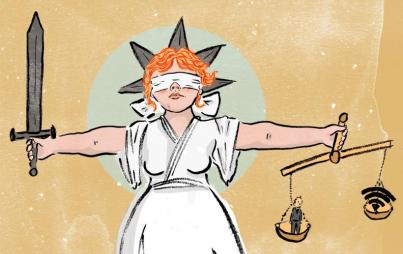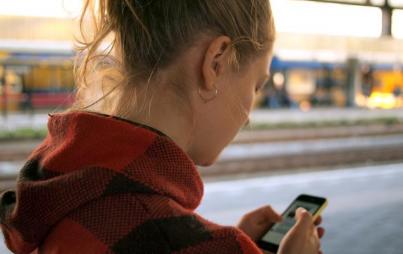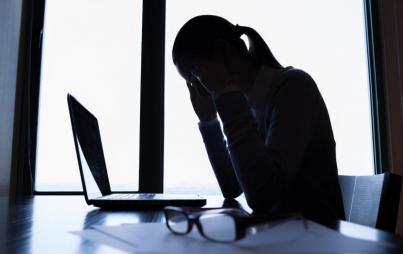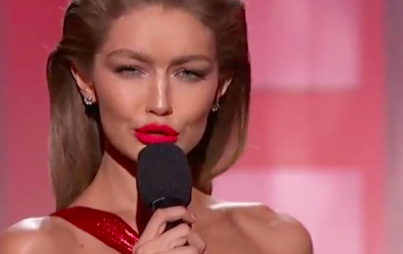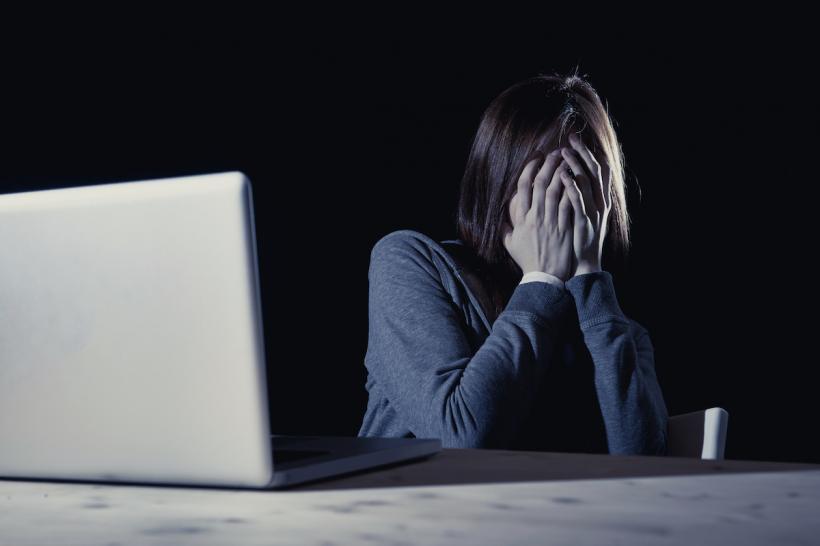
Do they not realize that there’s a person on the receiving end of those words?
The Internet is a terrifying and murky place. It can be a wondrous place, too, but it’s definitely home to its own brand of terrifying. As someone whose job is essentially to live and breathe the Internet, I’ve seen this terrifying madness up close. Far too many times. And guess what? I’m over it.
I started blogging almost a decade ago. These were the days when blogging was still in its infancy and having an online presence wasn’t really seen as a viable career option. I’d graduated college with a journalism degree a few years before and had been working as a freelance writer and newspaper columnist. I viewed starting a blog as the next logical step; if nothing else, at least I’d have a spot to showcase my writing clips.
Everyone seemed to have an opinion — on what I did, what I didn’t do, even something as innocent as my love of Mountain Dew. Otherwise harmless conversations became observations. Observations became criticisms. And criticisms became hate.
But something amazing happened during that first year: I found my voice online. As I started writing about things like relationships and my life with a physical disability, I finally felt as though I’d found my niche. I felt liberated and refreshed. Blogging became my safe space. Sharing my story became something I needed to do and not just something that was a fun little hobby.
Unfortunately, the Web moves fast, and as blogging became more mainstream, the culture of the Internet was born. Comments sections flourished and became the millennial generation’s answer to the malt shop.
It wasn’t long before I started noticing a trend, though. It was a subtle shift at first, quickly morphing into an alarming phenomenon that couldn’t easily be ignored. Everyone seemed to have an opinion — on what I did, what I didn’t do, even something as innocent as my love of Mountain Dew. Otherwise harmless conversations became observations. Observations became criticisms. And criticisms became hate. To say that these words didn’t hurt would be a lie. They did hurt, yet I became pretty good at shrugging them off as nothing more than mindless hate from some Internet trolls.
Then last month, I received the cruelest, most demeaning form of hate to date, on Twitter.
I tweeted my thoughts about a recent incident involving two YouTubers (a guy attacked a girl), saying how disgusting it is that the guy is blaming the victim. Apparently, not everyone agreed with me, as evidenced by this hateful diatribe I received.
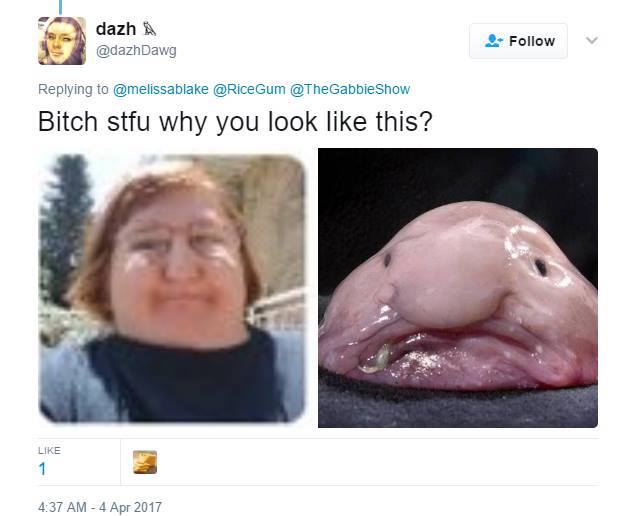
This person eventually deleted the tweet, but it still stung, especially because my disability has always made me self-conscious about how I look. To have someone shine a huge spotlight on it and taunt you for your appearance felt like a crushing blow. It hurt in the way that someone you don’t even know would be so quick to make an assumption about you and judge you.
Don’t get me wrong; I think an open, honest dialogue is such a wonderful thing — when it’s done respectfully and maturely. But reducing someone to their appearance? That’s the sort of thing that happens on elementary school playgrounds between the under-ten set. It’s not something that should be happening between civilized adults.
As much as I don't want it to, the hurt sticks for a while. It takes a while to process everything and get to a point where you're able to say, "OK, it's not me. I don't have to give this person any more space in my head."
It also hurt because I know this type of bullying happens far too often, and that’s exactly what it is — bullying. It’s become such a knee-jerk reaction to fire off a mocking tweet or post an angry comment that we’ve reduced ourselves to people who merely trade insults over the computer.
This happens so frequently that we’ve become desensitized to seeing people make fun of each other online. It’s become part of our culture.
I’ve spent so much time wondering what would drive someone to spew such thoughtless hate — at someone they don’t even know, no less. Do they not realize that there’s a person on the receiving end of those words? Once those hateful words are sent over cyberspace, I’m pretty sure the bullies forget the whole exchange once they shut their laptop. Yet, I guarantee you that the victim can't forget the cruelty so quickly. As much as I don't want it to, the hurt sticks for a while. It takes a while to process everything and get to a point where you're able to say, "OK, it's not me. I don't have to give this person any more space in my head."
We want to just brush it off with a quaint and tidy phrase like “haters gonna hate,” but we can’t just stop there. Because that only perpetuates this culture; it’s basically like saying “Oh, I can’t do anything to change things.” So we don’t acknowledge it, and we keep our mouths shut, maybe out of fear or maybe out of feelings of helplessness.
Honestly, this mentality is not OK.
Here’s the truth about change: It starts with you.
You can set the tone. You can set an example. You can show people that there’s a right and wrong way to treat others. This goes for both online and offline interactions. What happens when who we are online becomes who we are offline, in the “real world”? What happens when we start tossing around hate and insults in real time? I fear that’s exactly where our society is headed and that terrifies me more than that Twitter picture ever could.
Don’t be afraid to stand up for yourself and tell your story. It’s your story. Own it. And don’t ever let anyone try to silence your voice.
Taking away someone’s voice is one of the worst things you can do. Don’t. Be. That. Person.
Your voice is powerful, and I sincerely hope you’ll use it for good. You do have the power to change the world for the better. Why would you ever want to let someone’s thoughtlessly cruel words stand in your way?




